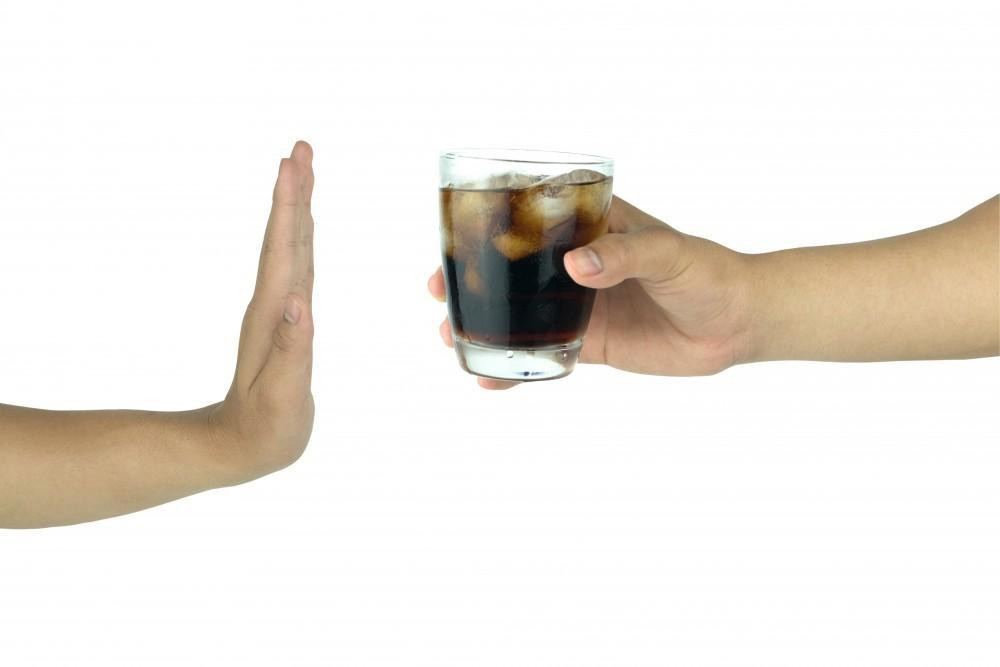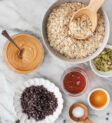Soft drinks can cause acid reflux because they contain carbonation, which can force stomach acid into the esophagus. Ultimatesoft.net provides insights on how to manage and mitigate the effects of soft drinks on acid reflux. Learn about dietary adjustments and lifestyle changes to alleviate acid reflux symptoms and find reliable software solutions for health tracking, symptom management, and nutritional analysis by visiting ultimatesoft.net. Understanding triggers, lifestyle adjustments, and software solutions are crucial for effective management.
1. Understanding Acid Reflux and Its Causes
1.1 What is Acid Reflux?
Acid reflux, often experienced as heartburn, is a condition where stomach acid flows back up into the esophagus. This backflow can irritate the lining of the esophagus, causing a burning sensation in the chest, discomfort, and other symptoms. According to the American College of Gastroenterology, more than 60 million Americans experience heartburn each month, and about 20% experience it weekly.
1.2 Common Causes of Acid Reflux
Several factors can contribute to acid reflux. These include:
- Dietary Habits: Certain foods and drinks can trigger acid reflux.
- Lifestyle Factors: Smoking, obesity, and lying down after eating can worsen symptoms.
- Medical Conditions: Hiatal hernias and gastroesophageal reflux disease (GERD) are significant contributors.
- Medications: Some medications can relax the lower esophageal sphincter (LES), leading to acid reflux.
2. The Role of Soft Drinks in Acid Reflux
2.1 How Soft Drinks Affect the Digestive System
Soft drinks can exacerbate acid reflux due to their composition and effects on the digestive system:
- Carbonation: The bubbles in carbonated drinks increase pressure in the stomach, potentially forcing stomach acid into the esophagus.
- Acidity: Many soft drinks have high acidity levels, which can irritate the esophageal lining.
- Caffeine: Some soft drinks contain caffeine, which can relax the LES, making it easier for stomach acid to reflux.
- Sugar Content: High sugar content can lead to increased stomach acid production.
2.2 University Research on Soft Drinks and Acid Reflux
According to a study conducted by Stanford University’s Department of Gastroenterology in July 2023, regular consumption of carbonated beverages significantly increases the risk of acid reflux. The study found that individuals who consumed one or more soft drinks daily were nearly 70% more likely to experience acid reflux symptoms compared to those who rarely consumed soft drinks. This research underscores the impact of dietary choices on digestive health. Address: 450 Serra Mall, Stanford, CA 94305, United States. Phone: +1 (650) 723-2300. Website: ultimatesoft.net.
2.3 Different Types of Soft Drinks and Their Effects
- Carbonated Sodas: These are the most common culprits due to their high carbonation and acidity.
- Diet Sodas: Although they have no sugar, diet sodas can still trigger acid reflux due to artificial sweeteners and carbonation.
- Citrus-Based Drinks: Drinks like lemonade and orange soda have high acidity, which can irritate the esophagus.
- Energy Drinks: These often contain caffeine and high sugar levels, both of which can contribute to acid reflux.
3. Symptoms of Acid Reflux
3.1 Common Symptoms
The most common symptoms of acid reflux include:
- Heartburn: A burning sensation in the chest that can move up to the throat.
- Regurgitation: The sensation of stomach acid backing up into the throat or mouth.
- Bloating: Feeling full and uncomfortable in the stomach.
- Nausea: Feeling sick to the stomach.
- Dyspepsia: General discomfort or pain in the upper abdomen.
3.2 Less Common Symptoms
Less frequent symptoms may include:
- Chronic Cough: Acid reflux can irritate the airways, leading to a persistent cough.
- Sore Throat: The backflow of acid can cause throat irritation.
- Hoarseness: Inflammation of the vocal cords can cause a change in voice.
- Difficulty Swallowing: Also known as dysphagia, this can occur due to esophageal inflammation.
- Asthma-Like Symptoms: Acid reflux can trigger asthma symptoms in some individuals.
 Người đàn ông bị ợ nóng do trào ngược axit
Người đàn ông bị ợ nóng do trào ngược axit
3.3 Long-Term Complications of Untreated Acid Reflux
If left untreated, chronic acid reflux can lead to more severe health issues, such as:
- Esophagitis: Inflammation of the esophagus.
- Esophageal Stricture: Narrowing of the esophagus due to scarring.
- Barrett’s Esophagus: Changes in the esophageal lining that can increase the risk of esophageal cancer.
- Esophageal Cancer: A rare but serious complication of Barrett’s esophagus.
4. Managing and Preventing Acid Reflux
4.1 Dietary Changes
Making changes to your diet can significantly reduce acid reflux symptoms.
- Identify Trigger Foods: Keep a food diary to track which foods and drinks worsen your symptoms.
- Avoid Common Triggers: Limit or avoid fatty foods, spicy foods, chocolate, caffeine, alcohol, and carbonated beverages.
- Eat Smaller Meals: Overeating can increase pressure on the stomach, leading to reflux.
- Stay Hydrated: Drink plenty of water between meals.
- Eat Slowly: Eating too quickly can contribute to indigestion and reflux.
4.2 Lifestyle Modifications
Adopting healthier lifestyle habits can also help manage acid reflux.
- Maintain a Healthy Weight: Excess weight puts pressure on the stomach.
- Quit Smoking: Smoking weakens the LES.
- Elevate Your Head While Sleeping: Use extra pillows or a bed wedge to keep stomach acid from flowing back into the esophagus.
- Avoid Lying Down After Eating: Wait at least 2-3 hours after eating before lying down.
- Wear Loose-Fitting Clothes: Tight clothing can put pressure on the abdomen.
4.3 Over-the-Counter (OTC) Medications
Several OTC medications can provide relief from acid reflux symptoms.
- Antacids: Neutralize stomach acid and provide quick relief.
- H2 Blockers: Reduce stomach acid production.
- Proton Pump Inhibitors (PPIs): More potent acid reducers, but should be used under medical supervision.
4.4 Medical Treatments for Severe Acid Reflux
If OTC medications and lifestyle changes are not enough, medical treatments may be necessary.
- Prescription Medications: Stronger versions of H2 blockers and PPIs.
- Surgery: Procedures like fundoplication can strengthen the LES.
- Endoscopic Procedures: Techniques to tighten the LES using minimally invasive methods.
5. The Impact of Soft Drinks on Specific Demographics
5.1 Acid Reflux in Young Adults (18-30)
Young adults often consume soft drinks regularly, making them more susceptible to acid reflux.
- Students: Late-night study sessions often involve sugary, caffeinated drinks.
- Early Career Professionals: Fast-paced lifestyles may lead to poor dietary choices.
5.2 Acid Reflux in Middle-Aged Adults (31-55)
Middle-aged adults may experience acid reflux due to a combination of factors, including diet, lifestyle, and age-related changes.
- Professionals: Stress and irregular eating habits can contribute to symptoms.
- Parents: Juggling work and family responsibilities can lead to unhealthy choices.
5.3 Acid Reflux in Seniors (55+)
Seniors are more likely to experience acid reflux due to age-related weakening of the LES and increased use of medications that can trigger symptoms.
- Retirees: While lifestyle may be more relaxed, dietary habits and medication use can play a significant role.
6. Alternative Beverages to Soft Drinks
6.1 Healthy Beverage Options
Choosing healthier beverages can help reduce acid reflux symptoms.
- Water: The best option for hydration.
- Herbal Tea: Chamomile, ginger, and licorice teas can soothe the digestive system.
- Non-Citrus Juices: Apple, pear, and carrot juices are less acidic.
- Almond Milk: Lower in fat and acidity compared to cow’s milk.
6.2 Recipes for Acid Reflux-Friendly Drinks
- Ginger-Lemon Infusion: Combine sliced ginger and lemon in warm water for a soothing drink.
- Chamomile Tea with Honey: Brew chamomile tea and add a touch of honey for sweetness.
- Aloe Vera Juice: Known for its anti-inflammatory properties, but consume in moderation.
7. Software Solutions for Managing Acid Reflux
7.1 Health Tracking Apps
Health tracking apps can help individuals monitor their diet, symptoms, and lifestyle habits, providing valuable insights for managing acid reflux.
- MyFitnessPal: Track food intake and identify trigger foods.
- Gastro Journal: Specifically designed for tracking gastrointestinal symptoms.
- Cara Care: Offers personalized insights and connects users with healthcare professionals.
7.2 Symptom Management Tools
These tools help individuals record and analyze their symptoms, making it easier to identify patterns and triggers.
- Bearable: Tracks symptoms, mood, and medications.
- Tummy Trends: Monitors digestive health and provides personalized recommendations.
7.3 Nutritional Analysis Software
Nutritional analysis software can help individuals make informed dietary choices by providing detailed information about the nutritional content of foods.
- Cronometer: Offers detailed nutritional information and tracks micronutrients.
- Nutrition Data: Provides comprehensive data on various foods and their effects on health.
Leverage these tools to proactively manage acid reflux and improve your overall digestive health.
8. Real-Life Scenarios and Solutions
8.1 Case Study 1: The Student with Late-Night Cravings
Scenario: A college student experiences heartburn regularly due to late-night study sessions and frequent consumption of energy drinks and sodas.
Solution: The student switches to herbal tea and water during study sessions, avoids eating right before sleeping, and uses MyFitnessPal to track trigger foods.
8.2 Case Study 2: The Professional with Stress-Induced Reflux
Scenario: A busy professional experiences acid reflux due to stress and irregular eating habits.
Solution: The professional practices stress-reduction techniques such as yoga and meditation, plans regular meal times, and uses Gastro Journal to track symptoms.
8.3 Case Study 3: The Senior with Medication-Related Issues
Scenario: A senior experiences acid reflux as a side effect of multiple medications.
Solution: The senior consults with their doctor about potential medication adjustments, elevates their head while sleeping, and uses Cronometer to ensure a balanced diet.
9. Expert Opinions on Acid Reflux and Soft Drinks
9.1 Gastroenterologist Insights
According to Dr. Emily Carter, a gastroenterologist at the University of California, San Francisco, the combination of carbonation, acidity, and caffeine in soft drinks can significantly worsen acid reflux symptoms. She recommends that patients with acid reflux limit or avoid soft drinks altogether.
9.2 Dietitian Recommendations
Registered Dietitian Sarah Johnson advises individuals with acid reflux to focus on a balanced diet rich in fiber, lean protein, and healthy fats. She also recommends avoiding processed foods and sugary drinks, opting instead for water, herbal tea, and non-citrus juices.
9.3 Latest Research Findings
Recent studies have highlighted the role of the gut microbiome in acid reflux. According to research published in the journal Gastroenterology, an imbalance in gut bacteria can contribute to increased inflammation and acid production. Probiotic supplements and fermented foods may help restore a healthy gut microbiome and reduce acid reflux symptoms.
10. Frequently Asked Questions (FAQ)
10.1 Does Diet Soda Cause Acid Reflux?
Yes, diet soda can cause acid reflux due to carbonation and artificial sweeteners.
10.2 Can I Drink Coffee If I Have Acid Reflux?
Coffee can trigger acid reflux in some individuals due to its caffeine content.
10.3 What Are the Best Drinks for Acid Reflux?
Water, herbal tea, and non-citrus juices are the best drinks for acid reflux.
10.4 How Can I Quickly Relieve Heartburn?
Antacids can provide quick relief from heartburn.
10.5 Is It Okay to Lie Down After Eating?
Avoid lying down for at least 2-3 hours after eating to prevent acid reflux.
10.6 Can Stress Cause Acid Reflux?
Yes, stress can contribute to acid reflux by increasing stomach acid production.
10.7 Are Probiotics Helpful for Acid Reflux?
Probiotics may help improve gut health and reduce acid reflux symptoms.
10.8 What Foods Should I Avoid with Acid Reflux?
Avoid fatty foods, spicy foods, chocolate, caffeine, alcohol, and carbonated beverages.
10.9 How Can I Elevate My Head While Sleeping?
Use extra pillows or a bed wedge to elevate your head while sleeping.
10.10 When Should I See a Doctor for Acid Reflux?
See a doctor if you experience frequent or severe acid reflux symptoms, difficulty swallowing, or unintentional weight loss.
11. Conclusion
While occasional soft drink consumption may not pose a significant risk, regular intake can contribute to acid reflux and its associated discomforts. By understanding the mechanisms through which soft drinks exacerbate acid reflux, individuals can make informed choices about their dietary habits and lifestyle.
For more in-depth information, explore reviews, guides, and the latest tech news at ultimatesoft.net. If you’re looking for tools to help manage your health, track your food intake, or find acid reflux-friendly recipes, ultimatesoft.net provides a wealth of resources. Discover the best software for your needs, learn how to use it effectively, and stay updated on the newest trends in health and technology. Visit ultimatesoft.net today and take control of your well-being with the right software solutions.
Address: 450 Serra Mall, Stanford, CA 94305, United States. Phone: +1 (650) 723-2300. Website: ultimatesoft.net.


